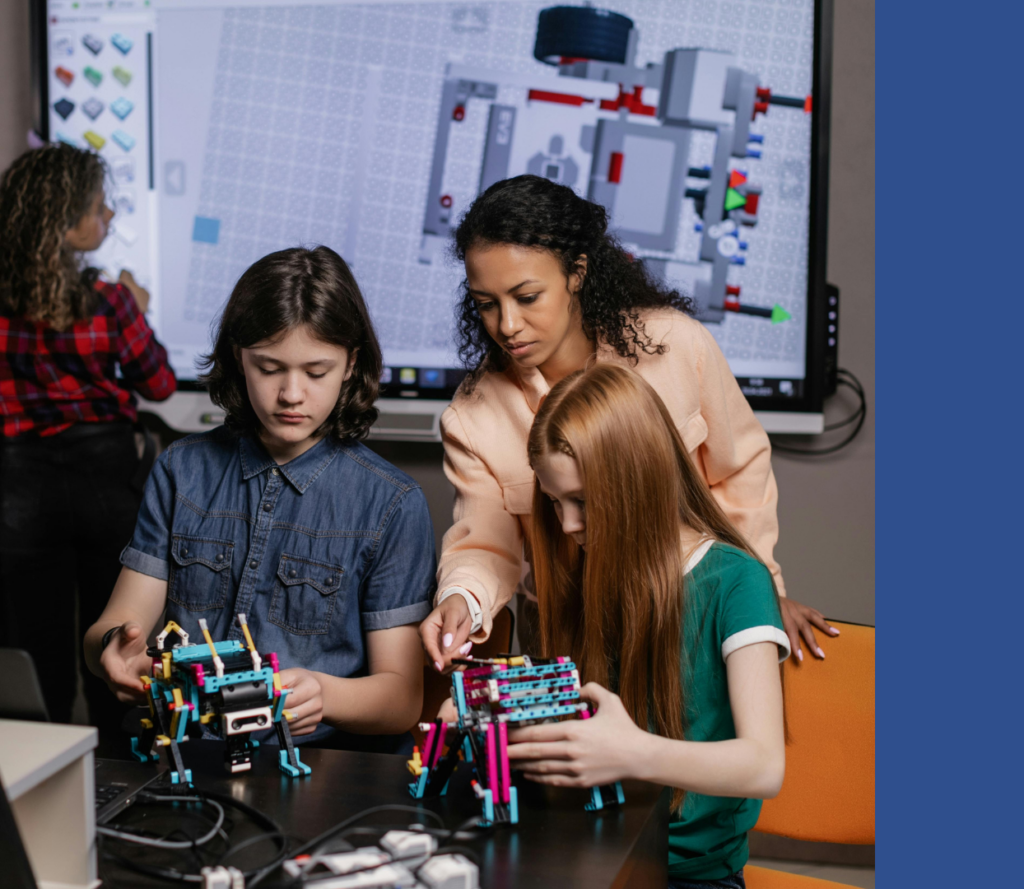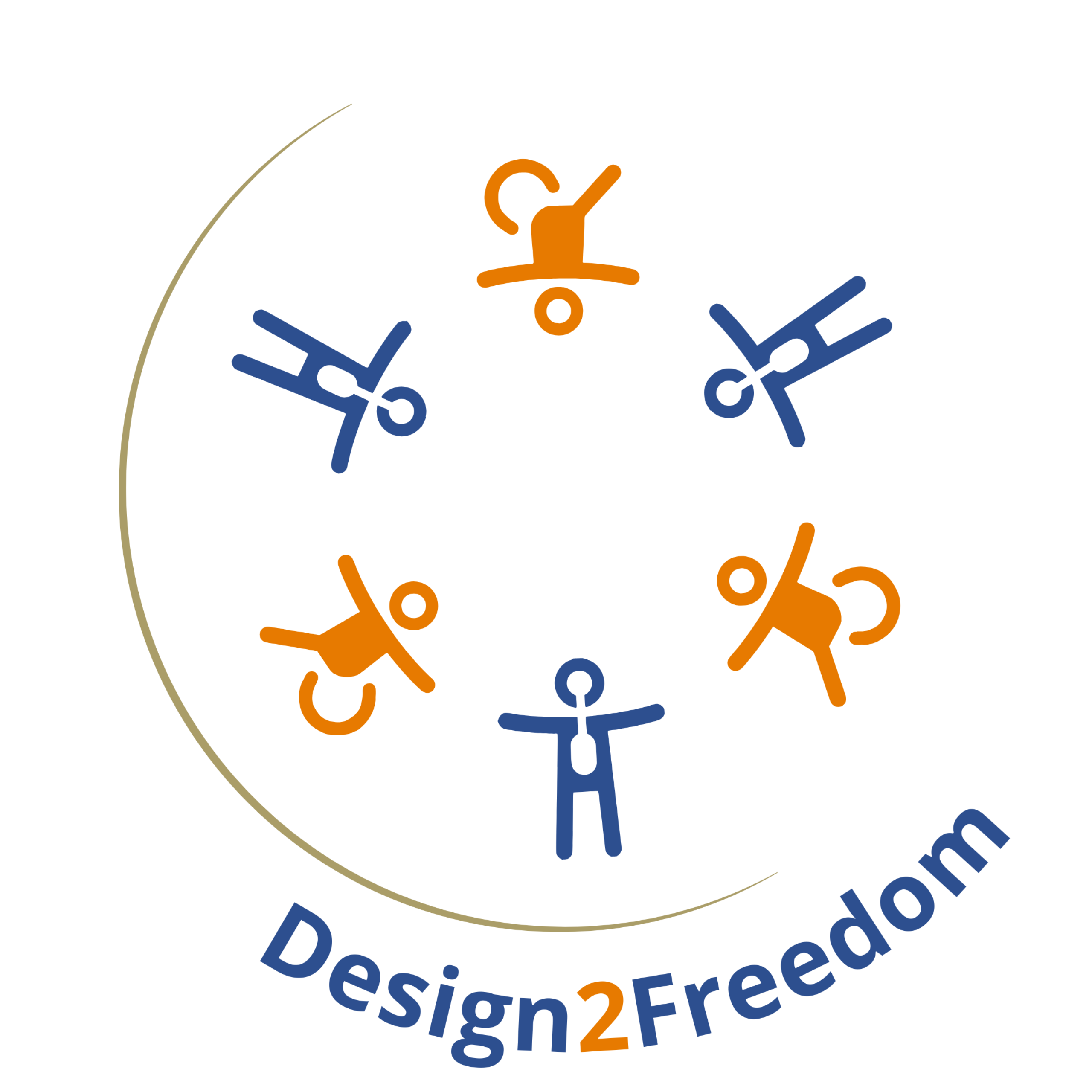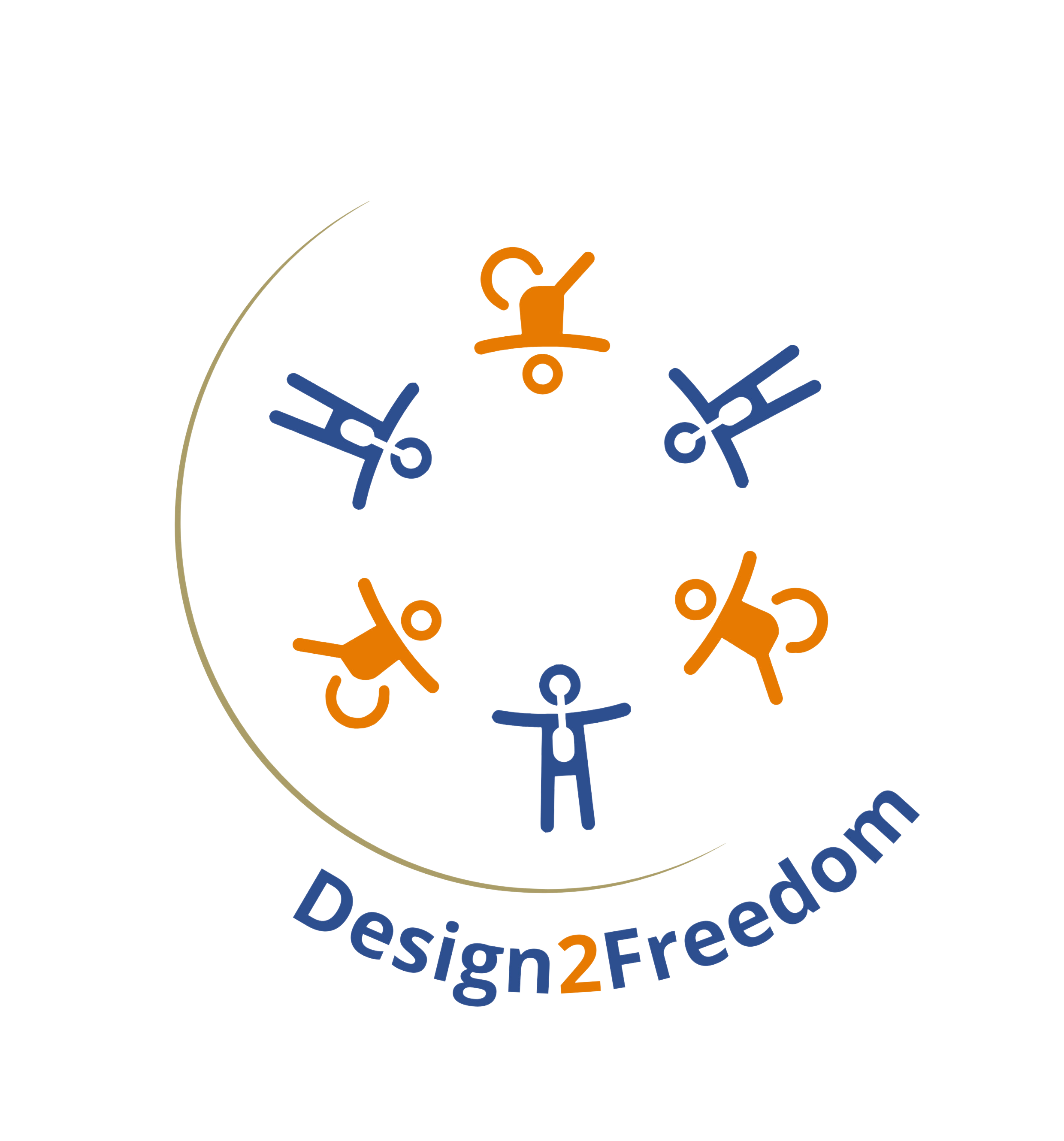


Welcome to D2F project
Promoting Person-Centred Design applied to disability in higher education.

Educational platform
Learn how to incorporate Person-Centered Design in university curricula.

Events and Pilot activities
Join the movement shaping an innovative person-centered design methodology.
The Design2Freedom project aims to tackle the critical issue of insufficient access to appropriate support products for people with disabilities (PwDs). According to the World Health Organization (WHO), 90% of those needing assistive products lack access to them, and 29.3% of PwDs who do have access abandon these products because they are not tailored to their needs. This gap perpetuates challenges in achieving autonomy and limits the right to live independently, as recognized by the International Convention on the Rights of Persons with Disabilities.
Higher education, as promoted by the European Education Area, must be inclusive and connected to its communities, addressing social challenges and prioritizing inclusion. The European Pillar of Social Rights and the 2030 Agenda underscore the importance of creating an inclusive society that leaves no one behind. Ensuring PwDs have access to useful support products is vital for their social participation.
To foster this inclusive reality, universities must teach Person-Centered Design, placing PwDs at the heart of the product and service design process. Design2Freedom introduces an innovative approach by using participatory and inclusive methodologies in teaching Disabled Person-Centered Design. This involves community social organizations and PwDs throughout the process and promotes the inclusion of students with disabilities.
Building on the experience of consortium partners like COCEMFE and the University of Coruña, which have successfully implemented similar initiatives, Design2Freedom employs methodologies such as Learning by Doing, Service-Learning, Challenge-Based Learning, and Design Thinking. These approaches have proven effective in creating meaningful learning experiences and designing person-centered products.
Person-Centered Design for Disability
We believe in a more inclusive society which puts the person at the heart of the product design.

The general objective of the project is to integrate PwD-Centered Design into university curricula through the adoption of participatory and inclusive methodologies. This involves rethinking and reshaping the educational approach to ensure that the specific needs of people with disabilities are addressed effectively. By incorporating these innovative design principles into higher education, the project seeks to create a more inclusive learning environment that not only educates but also empowers students to develop products and services that are truly user-centered and accessible to all.
Objectives of Design 2 Freedom
1. To improve the capacity of university faculty and staff participating in the project to apply inclusive approaches and participatory methodologies to Person Centered Design applied to disability.
2. To test and evaluate the application of participatory and inclusive Person Centered Design for people with disabilities in different university contexts.
3. To provide educational tools and resources for teaching Participatory and Inclusive Person Centered Design with Disabilities
4. Promote cooperation between Higher Education and Social Organizations
5. To promote that the educational community, social organizations, public administrations and social economy enterprises incorporate inclusive approaches and participatory methodologies for Person Centered Design.

